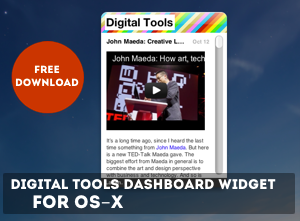
I am not sure, if you already seen this. Playpower somehow wants to do similar, than the one laptop per child project (OLPC). But – instead of providing cheap and educational laptops, they want to use 8-bit gaming systems. And it looks also very interesting.
The Playpower Foundation is using a $10 computer as a platform for 8-bit learning games in order to improve educational access for millions of children around the world. Motivated by the availability of this radically affordable platform, our goal is to design and discover high-quality 8-bit learning games and make computer-aided learning affordable for people everywhere.
About the technical details: The Playpower Platform will be basically a keyboard with mouse and 1Mhz processor that connects to a TV screen and takes plastic-encased chip cartridges that plug directly into the keyboard. The cartridges will use the 1980’s era 8-bit Nintendo Famicom cartridge form. One single cartridge can contain hundreds of software titles and it seems, that modding of old cartridges will be also possible.
The creators are sure, that 8-bit systems can be interesting enough, to engage people (I think they are right). With that slow and old machines, you are not able to let multimedia-applications run, or even higher sophisticated programs. Even building icons, that represent something, can be challenging. We all now that from the past. But also know, how much fun is hidden inside this constraints. As the project is meant as a educational project, they think developing own software. But here lies the drawback, because they say “there would be a lack of finding developers”. But, they propose a special framework, that could be interesting:
The issue with developing new content for the NES/Famicom TVC is that it requires assembly coding, which is a difficult and specialized skill. This makes it impractical to follow a traditional model of paying hired developers to produce new content, especially as this would limit both access to production and the variety the of resulting products. Therefore, our goal is to develop an open-source 8-bit programming kit that will make it far easier to program learning games. To accomplish this we plan to build on nBASIC, a high-level framework for building assembly code that uses BASIC programming conventions. Combining nBASIC with the complete documentation of the NES forms the core of our open-source programming kit. This simplified programming environment will aid developers from around the world in building or modifying their own 8-bit games, creating an ecosystem of 8-bit content to support regional languages, local educational needs, and diverse cultural expression.



Thanks Martin!
This project is honestly only possible because of the NES hacker and homebrew scene. They’ve developed so many great tools.
People like http://www.no-carrier.com/ have been really helpful to us, as well. 8-bit art scene, I think, is more about creative constraints than nostalgia
Posted on March 6th, 2009 at 00:29Yes, you are right. Creative contrains are a really, really good thing!
Posted on March 6th, 2009 at 01:13